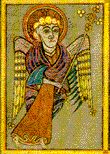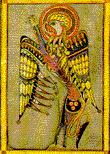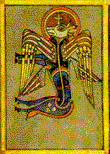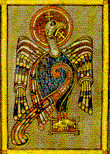
King Hereafter
"King Hereafter" was published in 1982 and it is the only one of Lady Dunnett's novels that is not part of a series. The author herself has been heard to say that she regards this as her favourite book.After Dunnett finished the Lymond Chronicles, her publishers suggested to her to write her next novel about a historical person with some local (i.e. Scottish) connection.




Lady Dunnett used a very interesting device here; a theory she came up with during the five years she spent researching the historical background of her novel: she identified Macbeth with Thorfinn II, Earl of Orkney, who lived at the same time as the former and ruled an 'empire' that encompassed Northern Scotland, the Hebrides, Man and parts of Ireland. There are astonishing parallels in the lives of both Macbeth and Thorfinn and it is assumed that they were closely related. But even if the reader doesn't share the author's premise this doesn't diminish the novel's attraction which is created in no small part by the author's consummate skill in using language.
Thorfinn/Macbeth is a man born of two cultures, the Christian tradition of a Scotland influenced by the Celtic Church and the way of life of his Viking ancestors who first came to Scotland as raiders. His personality is divided between those two poles but at the same time he unites them in himself. We meet him first as a young man who tries with shrewdness and courage to carve out his own dominion in the Scandinavian part of the British Isles, a man who is leading a life of constant battles against foes who even encompass members of his closest family but who is also skilled in executing intricate political manoeuvres. When he falls heir to the throne of Scotland he has to take on the almost impossible task of shaping a divided and poor country, constantly threatened by covetous neighbours, into a political unity.
Lady Dunnett creates a brilliant pageant of 11th-century Europe with its shifting political alliances and courtly intrigues but she's equally skilled in describing the minutiae of daily life. She draws a wide arc from the still half-pagan countries of northwestern Europe to the Emperor's court at Goslar and the Papal Curia at Rome.
The reader instantly recognizes the vast amount of scholarship that went into the creation of this novel. Every detail fits, (almost) every character is historically documented. But it is by no means a dry and scholarly account, quite the opposite. It's a gripping novel, which is at the same time funny and tragic, profound but not lacking a healthy sense of irony.
Heike Meyer, 2001




